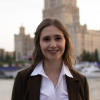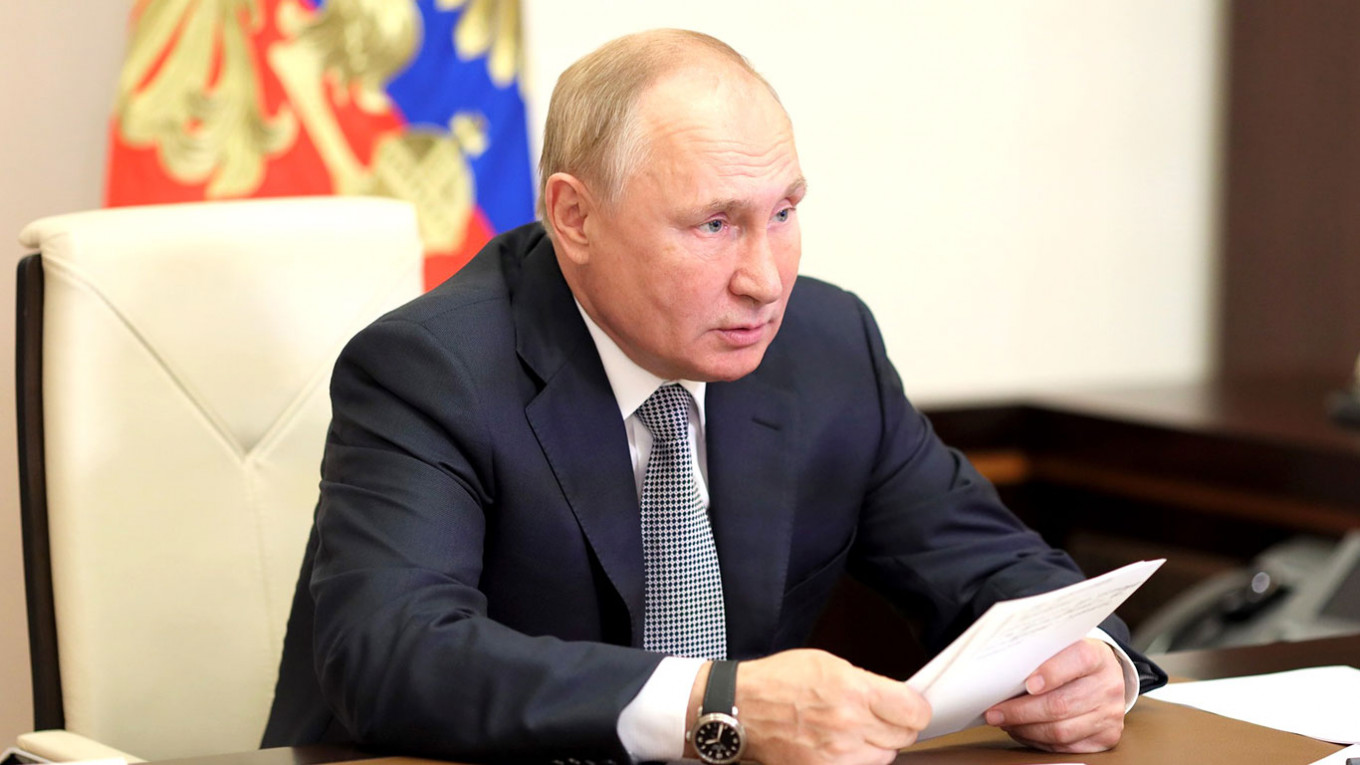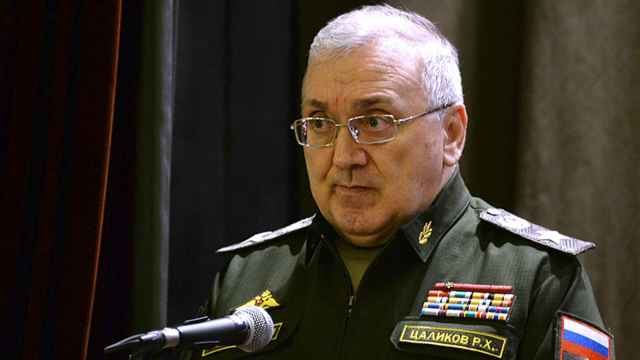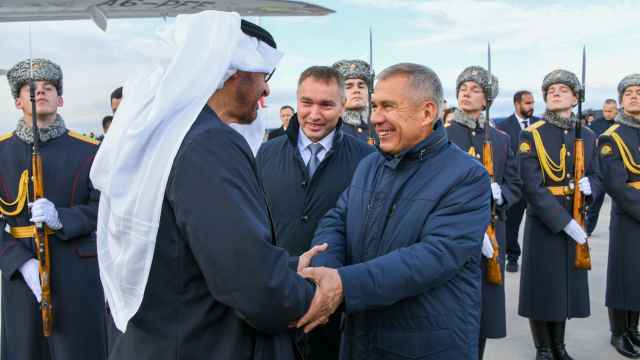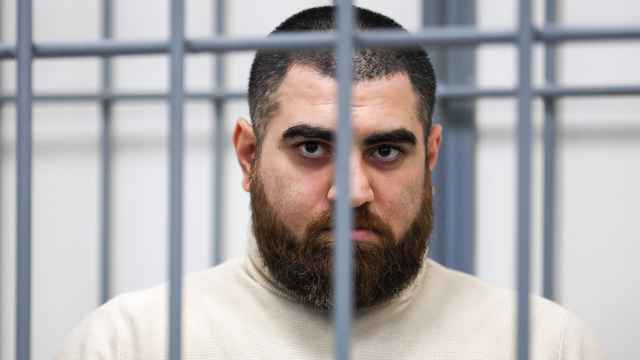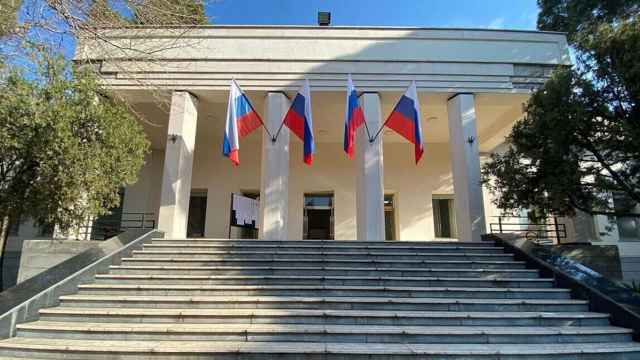President Vladimir Putin approved a non-working week from Oct. 30 to Nov. 7 on Wednesday as Russia’s coronavirus task force reported another daily record of 1,028 Covid-19 deaths over the last 24 hours.
Putin has signed a decree allowing regional authorities to extend non-working days beyond Nov. 7 with salary retention. The decree also gives federal and regional governments the power to determine how their cultural and health institutions will operate on non-working days.
The measures are effectively a paid vacation or orders for non-essential businesses to furlough their workers.
During the televised address, Putin stressed the importance of vaccination and called for the nationwide expansion of coronavirus testing. “It’s strange that well-educated people, people with advanced degrees, don’t want to get vaccinated. We have a safe and effective vaccine,” Putin said. “I call upon you to go out and get vaccinated. It's a question of your life and the lives of the people close to you.”
"We only have two ways to get through this: get sick or get vaccinated, but it's better to get vaccinated,” Putin said.
The Russian government has so far been reluctant to impose a nationwide lockdown despite having the highest Covid-19 death toll in Europe and currently reporting the second-highest daily fatalities in the world after the United States.
“I draw attention to the situation in the regions. In no case should the statistics be underestimated,” Putin said, addressing regional governors.
Russia has been breaking daily death records from Covid for three weeks in a row while the majority of the Russian population remains reluctant to take one of the domestically-developed vaccines.
Nearly half of Russians (45.6%) said they would never take a Russian- or foreign-made vaccine against coronavirus, while almost 19% said they’d rather wait until next year before deciding, according to a Moscow's Higher School of Economics survey published last month.
Putin said that employees’ salaries should be paid during the nationwide non-working week.
To offset the costs for businesses, First Deputy Prime Minister Andrei Belousov proposed providing state-backed credit to small and medium-sized businesses operating in the most affected sectors to cover part of employees’ salaries, equal to the national minimum wage of 12,792 rubles ($180).
During a televised meeting Wednesday, Golikova also said Russians should delay their travel to other regions.
Covid has been claiming lives of more than 1,000 Russians per day while only 32% of Russian adults have been fully vaccinated with two doses, despite the wide availability of the Sputnik V vaccine since last winter.
On Tuesday, Moscow mayor Sergei Sobyanin reintroduced work from home and mandatory vaccinations for service-sector workers. Elderly Muscovites are advised not to leave their homes unless they have been vaccinated.
Last week, Sobyanin said that Moscow’s residents aged 65 or older would be given a bonus of 10,000 rubles or $140 for a vaccine jab.
The general distrust regarding vaccine safety in Russia matches widespread Sputnik V skepticism in the Western countries that have not recognized Russian-developed vaccines.
The World Health Organization has not yet given Sputnik V the green light for emergency use, although it has been authorized for use in more than 70 countries, according to the jab’s developers.
A Message from The Moscow Times:
Dear readers,
We are facing unprecedented challenges. Russia's Prosecutor General's Office has designated The Moscow Times as an "undesirable" organization, criminalizing our work and putting our staff at risk of prosecution. This follows our earlier unjust labeling as a "foreign agent."
These actions are direct attempts to silence independent journalism in Russia. The authorities claim our work "discredits the decisions of the Russian leadership." We see things differently: we strive to provide accurate, unbiased reporting on Russia.
We, the journalists of The Moscow Times, refuse to be silenced. But to continue our work, we need your help.
Your support, no matter how small, makes a world of difference. If you can, please support us monthly starting from just $2. It's quick to set up, and every contribution makes a significant impact.
By supporting The Moscow Times, you're defending open, independent journalism in the face of repression. Thank you for standing with us.
Remind me later.

